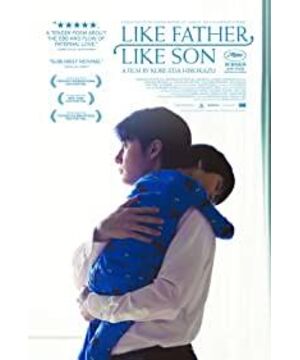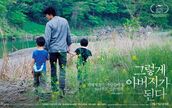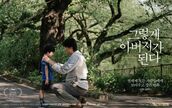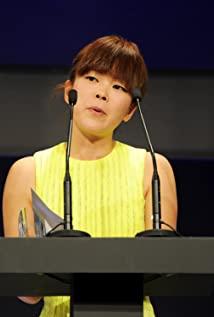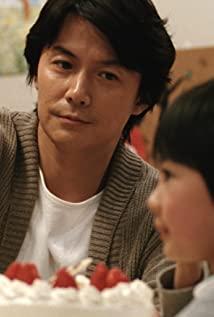Serious spoilers beware.
Part 1: Plot Summary
An obstetrics and gynecology nurse with an unbalanced mentality subcontracts her son, who originally belonged to a first-class ward woman, to an ordinary ward woman from an average family. So far, the two baby boys have begun a different life. When the boys were 6 years old, the nurses discovered the conscience and informed the parents of both sides. Out of the traditional thinking of "close relatives", the two families decided to exchange the children. However, changing back children is not as simple as bartering. The first 6 years of family education and living environment have had a huge impact on children. Such influence is subtle, and early education plays a decisive role in children's future development. Under different educational environments, the two boys gradually formed diametrically opposite personalities: On the contrary, Boy B, who was dumped into an ordinary family, was the eldest son in the family, was the only son in the family, and usually needed to live with a younger brother and a younger sister. He is introverted and cautious. A good educational environment makes him polite and polite, and he can play chess, calligraphy, and paint.
Boy A's adoptive father is an ordinary grocery store owner with a rambunctious personality and no lofty ambitions. In his spare time, he likes to take a family of five to fly kites, go on outings, and even accompany the children to play ocean balls in the children's amusement park;
Boy B's adoptive father is a small white-collar supervisor who goes in and out of high-end office buildings every day. He is ambitious, rigorous in his work, and serious in dealing with people and things. Due to his busy work, he has almost no time to accompany his children, but he has strict requirements for children's education.
How to convince themselves to accept a child brought up by others, how to take over the future education of their own children, and how to convince their children to accept themselves and their new living environment are what two fathers need to face.
Compared with white-collar fathers, the grocer is more accepting of children because of his casual personality, which makes him feel that no matter what education the child has received in the past six years and what kind of character he has developed, he can love with all his heart. He let him feel the happiness of the family. This kind of love is embodied in: bathing with him, sleeping with him, playing together, helping him repair toys, flying kites together, etc. His love is very ordinary, but it runs through Life has always been meticulous, which made it when the two families tried to exchange children. Although the exchanged child B was a little uncomfortable, he quickly integrated into the new family.
However, the strict character of the white-collar father makes him have very high requirements for everything. Child A, who has lived in an ordinary family for 6 years, has formed an outgoing and naughty character, which makes the white-collar father very difficult to accept. Headache Child A does not like to play the piano but likes to play game consoles. Although he is very smart, he is not good at learning. The white-collar father tried to correct Child A's way of holding chopsticks with the previous educational methods, taught him to learn, and taught him to be polite. For children, it is already too late, and the later corrections are quite powerless.
After learning that the child was not in person, the white-collar father's attitude towards Child B changed somewhat, and he even deliberately avoided the child's dependence and love for him. Child B has a pure and kind-hearted nature. He is always respectful to his adoptive father and always keeps in mind his father's teaching. Even if he is reluctant to learn the piano, when someone asks him, "Why do you want to play the piano?", he always answers in a childish voice: "Because Dad likes to listen to me play the piano." Six-year-olds understand how to comply with their parents' wishes and do things they don't want to do in order to please their parents.I am sad. Child B always likes to take pictures of him with his father's DSLR. When Father's Day came, he even made flowers for his father, but his father refused such love because Child B was not his own flesh and blood. He was careless and didn't recognize the children's love and reliance on him.
The children couldn't accept the fact that they had to exchange their parents first. The extroverted child A tried to resist the fact by being rebellious, resisting, and constantly pressing "why". Reluctantly, he tried to convince himself to accept the truth and integrate into his new family.
It was not until one day that Child A ran away from his biological parents' house and returned to his adoptive father's house. The white-collar father realized that the impact of the child's early education and environment on him could not be changed. Although this was his own child, his The character is already different from himself, even though the blood relationship is there, but the appearance is different. When he was in pain and hesitation, he began to look at his camera photos and accidentally found the photos his adopted son B took of himself. Each photo was printed on himself, sleeping, or tired, happy, or smiling. At this moment, he burst into tears.
"Even if he's not blood related to him at all, so what?"
Thinking like this, the white-collar father took his son A and drove from the big city to the small county where child B was. He was determined to give up his adopted son because the feelings of being together for the first 6 years could not be replaced by anyone.
When Child B saw the adoptive father he was thinking of, he turned his head and ran away. He seemed to realize that his father did not like him. The adoptive father chased after him, shouting all the way, "Go home with dad!"
"But you are not my dad," Child B replied with a crying voice. At that moment, the adoptive father must have felt very guilty. Because of his ruthlessness, he hurt the heart of the child who originally loved him. When he was young, he didn't know what "close relatives" were. He only knew who had been with him for the past 6 years. Even if his father does not accompany him often, even if his father is serious and harsh, he still loves his father as always. Children's love for their parents, although very simple, is also deeply rooted in the hearts of the people. It is like a babbling brook that surrounds the parents.
Afterwards, the adoptive father told him that he had seen the photos he took, and every photo was of his father; he had not kept the little flower for Father's Day well at first, and even lost the little flower; now he had found the little flower. It's back. It will be treasured in the future. While talking, the child stopped and walked slowly towards his father. The two families got together again. At this moment, the confusion in their hearts has been completely resolved, and life will continue.
Part 2:
The part of my white-collar father looking at the photos moved me to tears. Although I am not married, have no family of my own, and am not a mother, I still think and reflect on some of my own thoughts. For me, children are a group of naughty and unreasonable beings. I, who have always believed that "human nature is inherently evil," actually don't like children that much. But now, I have begun to try to think about the issue of "children" from different perspectives. I have begun to feel that raising a child is not just about educating him to grow up and teaching him to be a human being. On the contrary, in the whole process, it is more about self-awareness and self-reflection, the process of growing up with the child. The white-collar father in the film also took the opportunity of "changing children" to re-acquaint himself, realize the relationship between the family and the child, and reflect on the loss caused by his inability to accompany the child frequently.
In the past, I always thought that children were too naive, whimsical, and unreasonable, but in fact, in the process of educating children to be sensible and polite, I first need to create a good educational environment for them and teach them what should be and what should not be. At the same time, I need to understand his needs from the child's point of view, including his hobbies, his strengths, etc., instead of blindly forcing the child to become another ideal self and leaving him unfinished. All wishes are placed on him.
I have always felt that I am not mature enough and rational enough. Although I am 25 years old, I am not ready to get married and have children. I even started to be afraid of marriage and motherhood. I am afraid that I am not ready to run a family by myself. If you don't have enough patience and reason to raise your own children, and you are not yet mature, how can you teach others to be mature? However, I ignored the fact that "education of children is a matter of mutual learning and common growth." Should I change my role as an immature me, push myself hard, and allow myself to move forward, or will I be unable to grow up for the rest of my life?
As the saying goes, "Like your father, like your son," as your father, there must be a son. Yes, I think the child's initial educational environment has a huge impact on a child. Therefore, to give a child a good educational environment, use strict It is the best model for a family to educate him by combining it with loving-kindness and letting the immature me and the immature him grow together.
View more about Like Father, Like Son reviews


